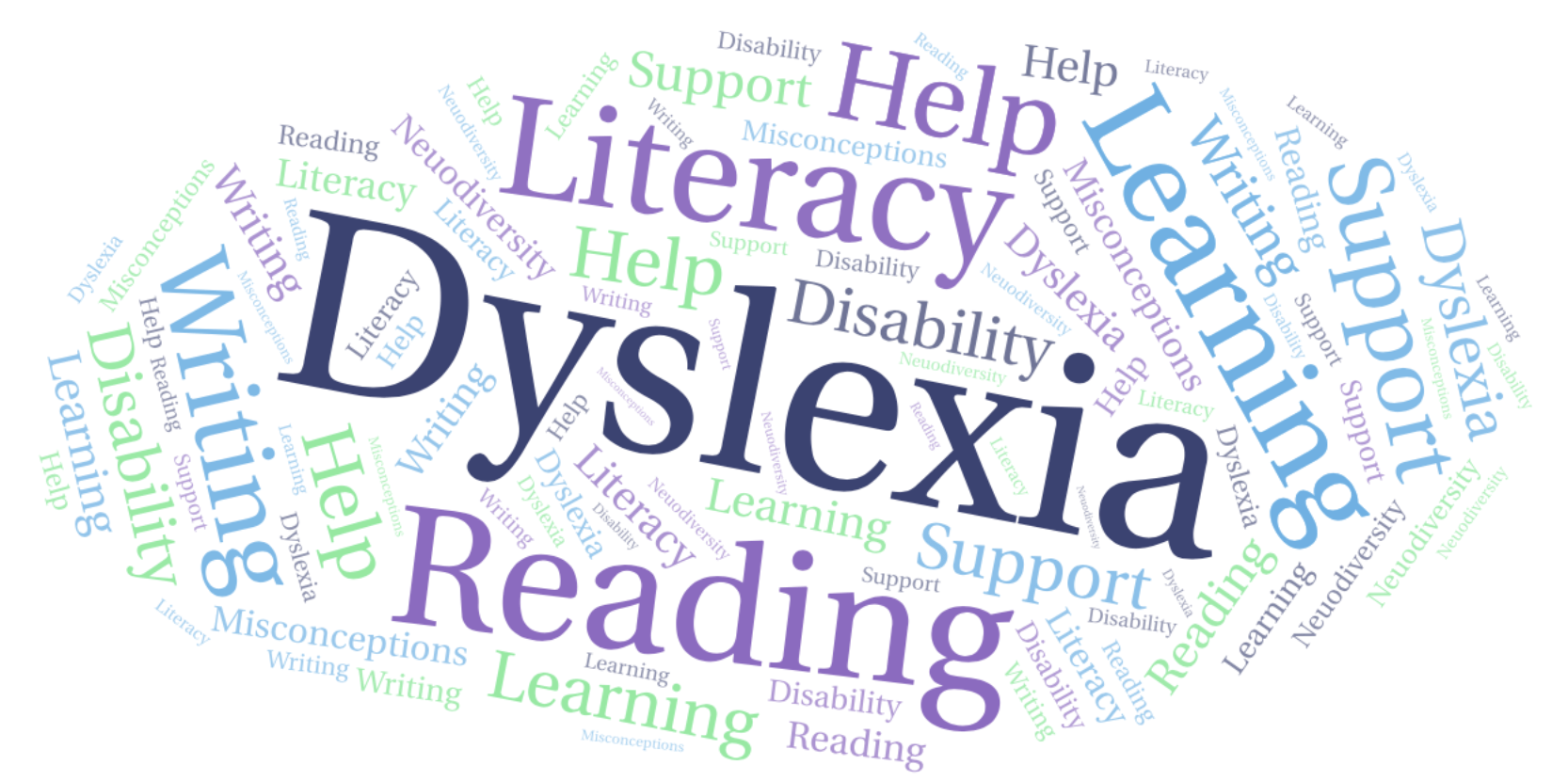10% of the population experience dyslexia and it affects people to varying degrees. A common error people make is the thought that dyslexia only affects a person’s ability to read or write. Whilst it is true that these skills are affected, dyslexia is actually about disrupted information processing. People with dyslexia may have difficulty processing and remembering information which can affect their literacy, memory and organisational skills. All of these can impact on everyday life and sometimes having some extra support from family and friends may be necessary. Below are a few tips for being a supportive friend to someone with dyslexia:
1) Learn.
Take your time to read through some information about dyslexia. Dyslexia is part of a spectrum of specific learning difficulties, so each person has a unique experience. It is important to understand the way that dyslexia may be affecting your friend specifically. There are lots of resources available online, and the British Dyslexia Association website provides up-to-date information and advice.
2) Understand that they may see the world differently.
People with dyslexia may interpret information differently to you. One example is that language may be interpreted more literally, meaning that jokes and sarcasm may be misunderstood. Be understanding of any misconceptions they may have, and reassure them so that they feel supported.
3) Slow it down.
Some people with dyslexia process spoken and written language at a slower pace. It may be helpful when chatting with your friend to ask one question at a time, or break information down into smaller chunks so that it is easier to process.
4) Recognise that stress may make dyslexia symptoms worse.
There is some research to suggest that people with dyslexia are more sensitive to stress. In high pressure situations, the symptoms associated with dyslexia may become more prominent. If you spot that your friend is having a stressful time, suggest a relaxing activity that you can do together, like making dinner or going to a yoga class. This may be especially important in exam periods where stress levels may be raised but dyslexia symptoms are impairing their ability to work efficiently.
5) Be patient.
People with dyslexia often have to work harder than others and work extra hours to overcome daily challenges. If your friend is tired, their symptoms may be more pronounced and they may not be able to employ their usual coping strategies. Be patient and allow your friend the time to catch up.
6) Don’t assume that you know what’s best for your friend.
They may not want or be needing your help. In general, let your friend come to you when they need advice but make sure you are able to recognise warning signs if they are struggling.
7) Support is available.
Students with dyslexia are eligible for Disabled Students’ Allowances which fund support at university and equipment. There is already a range of assistive software which is free to use on Library PCs that can mind-map or read aloud articles, as well as proofread and spell check assignments. Not only is this software useful for people with dyslexia, but it can be helpful for all students, so the more people who are aware of these resources the better. The university’s Disability Services can help put this support in place. To find out more about different support options, encourage your friend to visit the advisors in LUU Help & Support, based in the Union Foyer – look out for people in teal blue t-shirts.
The 22nd November to 22nd December is UK Disability History Month, which is an opportunity to continue to raise awareness of dyslexia and other disabilities and neurodiversity. The month covers HIV/AIDS day (1st December), International Day of People with Disabilities (3rd December) and International Human Rights Day (10th December). The university will be taking part in the #PurpleLightUp movement on the 3rd December as a mark of global solidarity, recognising the economic contribution of disabled people. The Parkinson Building will be lit up purple in support, so make sure you check it out.
Maisie Ingram LUU Health and Wellbeing Ambassador

